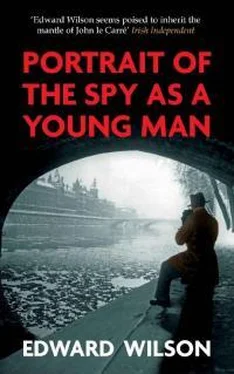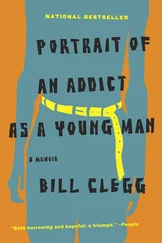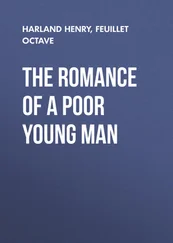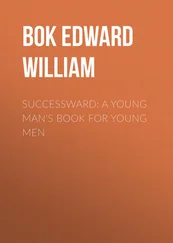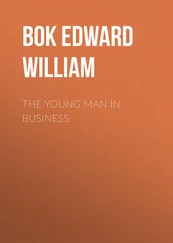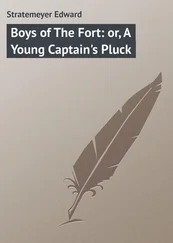Catesby felt, and not for the last time, that he was passing through the Looking Glass.
‘Anthony, as I mentioned, now works in Room 055 – the most hush of all hushes. It’s located in the War Office, but is actually the London HQ of MI5. You won’t, however, be going there, even though Five still does a lot of vetting.’ Ewan betrayed a half-smile. ‘Does the name Selwyn Jepson mean anything to you?’
‘You mean the Selwyn Jepson who writes detective novels – The Death Gong and Rabbit’s Paw ?’
‘That’s the one. The books are entertaining, but not overly challenging. In any case, Major Jepson is now in charge of recruiting for SOE’s French section. He’ll begin by testing you with his own schoolboy French. Embarrassing, but try to keep a straight face.’
The requisitioned hotel had known better days. The War Office had turned the building’s Victorian grandeur into a bleak functional desert of bare light bulbs, folding tables and chairs, and blackout curtains. There was only one other person in the waiting room, a woman. ‘I’m here very early,’ she said in a quiet voice, ‘I am sure you will go first.’
Catesby tried to place her accent. It was more French than English, but had a hint of something else in it too. Although she was diminutive, there was something grand about her. A moment later, Catesby was summoned into the interview room – dead on time to the second. He looked at the woman who said, ‘Good luck.’ He never saw her again. When he finally discovered who she was, years later, Catesby realised that he had briefly brushed shoulders with the ultimate in lonely courage.
The only furniture in the interview office was two folding chairs and a green metal desk. A blackout screen was still drawn even though it was midday. A single naked light bulb flickered, making the man behind the desk look like a character in a badly spliced film. The light bulb stopped flickering and Catesby was surprised to see that his interviewer was wearing the uniform of a Royal Navy captain. Where, thought Catesby, was Major Jepson? The interviewer’s first questions provided an answer. The language was French and grammatically correct, but the accent was pure English schoolboy – although certainly better than Churchill’s. The other clue was a rough notebook on the side of the desk, set well away from the crisp official paperwork. A furtive glance revealed what might have been a scribbled title on the notebook cover: Man Running. The naval uniform was part of another fiction. Catesby began to feel a certain warmth for Major Jepson.
Once Jepson was assured that Catesby spoke fluent French, he shifted into English. ‘I see, Mr Catesby, that you are a grammar school boy from, of all places, Lowestoft. Any connection with the fishing industry?’
‘Quite a few of my father’s family worked on trawlers and drifters, but few managed it for a lifetime.’
‘Are you handy with boats?’
‘Not bad. I’ve done a lot of long-lining with my uncles – and I’ve also crewed a few yachts.’
‘Good. How an earth did you learn to speak such excellent French?’
Catesby knew perfectly well that Jepson had the answer in the file in front of him, but – as he later learned – good interrogators always like to hear the answer from the interviewee’s own lips. It’s a way of checking for cracks in what might be a cover story. ‘My mother,’ said Catesby, ‘is Belgian. My father died in an accident at sea when my sister and I were very young. I think she wanted to turn us into little Belgians in case she ever decided to go home.’
‘How interesting.’
Catesby bit his lip and cursed himself for having said too much, but Jepson was like a truth serum.
‘Would you have liked to have gone back to Belgium?’ asked Jepson.
‘I’ve never been to Belgium – and I would have hated leaving England.’
‘But if you get accepted for this job, you will certainly leave England.’
‘I meant leaving England as child and being brought up by my mother’s family.’
‘That sounds a bit disloyal to your poor mother. Did you meet many of her Belgian family?’
‘When I was about ten, my mother’s brother and his Russian wife came to live with us for two years. It was all very mysterious. I’m not sure what they did during the day. My sister grew very fond of the wife and learned a bit of Russian from her – although she always spoke French or English to me.’
‘This gets even more interesting. Tell me more.’
‘Well, the Russian aunt by marriage was certainly not a Bolshevik. She claimed her family were aristocracy and they ended up in Paris either after the revolution or the civil war. The story kept changing. In any case, her brothers ended up driving taxis in Paris.’
Jepson smiled. ‘That sounds typical. In the twenties, you couldn’t find a taxi in Paris that wasn’t driven by a Romanov prince. Didn’t you find your aunt and uncle fascinating?’
‘A little, but at that age I only wanted to be an English boy who was good at football and cricket. It was all too foreign. I could never bring friends to a home that was hung with Roman Catholic icons where the grown-ups spoke English with an accent.’
‘I can understand the way you felt. But it could soon be your turn to pretend to be a European who can’t tell a cricket bat from a fence post.’
‘I am sure I could keep the English boy undercover. I had to do it with my mother’s family.’
‘Good. Tell me more about her and her family.’
‘My mother worked as a bargirl in a tavern near the docks in Antwerp where she met my dad who was a merchant sailor. She told me her father owned the bar, which I’m sure was true. My uncle used to brag about having helped smuggle Belgian beer and spirits to bootleggers during the American prohibition – which ties in with a family already established in the booze business. In fact, I have the impression that many on my mother’s side may have been crooks.’
Jepson broke into a broad smile. ‘That’s great. We love crooks in this business. Can’t get enough of them. Any forgers? Belgians do excellent forgeries.’
‘Not that I know of.’
‘Could you contact your Belgian relatives if necessary?’
‘It would be difficult. I know very little about them other than my mother’s maiden name, Bastin, which is pretty common. I know that her own mother was Flemish – and that a marriage across the linguistic divide was very unusual. But I know nothing more. My mother is the most close-lipped and secretive person that I have ever met.’
‘Any idea why?’
Catesby reddened. ‘I think my mother has something in her past that she wants to hide.’
‘I see.’ Jepson looked at Catesby over a steeple of fingertips. ‘Tell me more.’
‘I honestly can’t tell you more about the Bastins or my mother’s past. She is now a very conservative and devout Roman Catholic – mass and communion three or four times a week. She hated my leaving Cambridge to enlist in the army. In fact, we once had a serious argument when she praised Marshal Pétain for signing the armistice. She said that Pétain was a hero for saving the present generation of French and Belgians from the slaughter of the Great War. I believe one of her brothers was killed in that war, but she never talked about it.’
Jepson nodded. ‘Your mother’s views are in no way unusual – and understanding and changing them is an important challenge for the Resistance. Most people want a quiet life; they don’t want themselves or their families to get killed. What do you think?’
‘It’s a difficult point of view to argue against. I think the only way to change minds is to show them that the Nazis can be defeated.’
‘Good. Would it be fair to say that your volunteering for such dangerous duties is a reaction against your mother?’
Читать дальше
